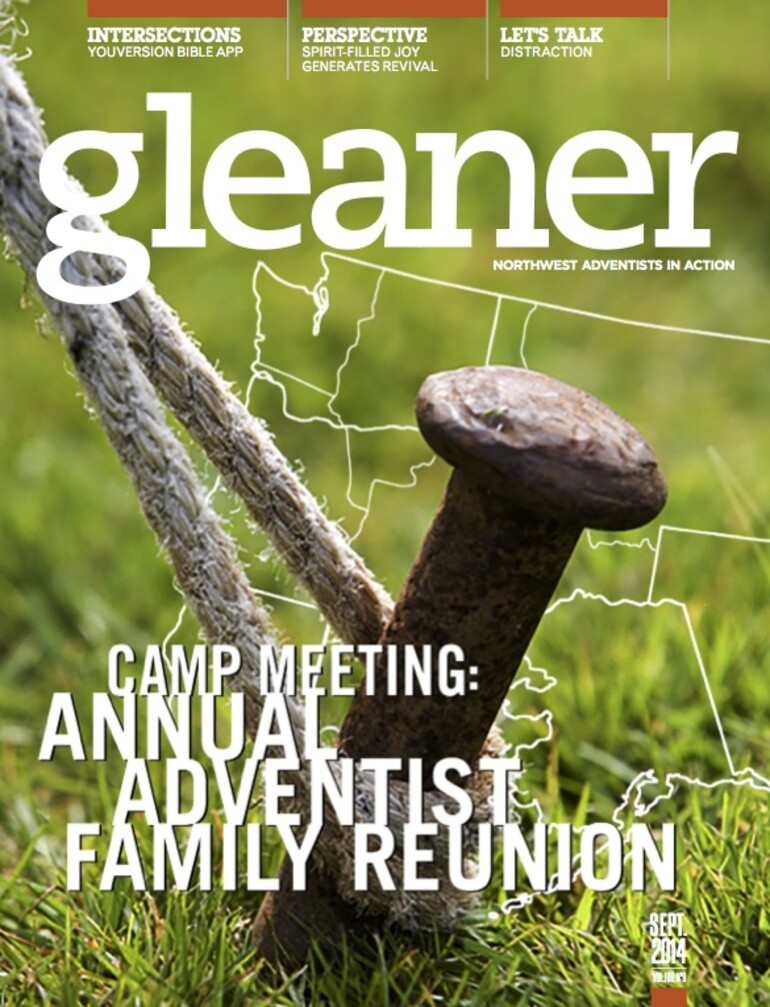Since “the fruit of the Spirit is love, joy, peace ...” (Gal. 5:22), joy is both an indicator and a vindicator of genuine revival and reformation.
On Pentecost, when our resurrected Jesus became enthroned in heaven’s sanctuary, the Holy Spirit came upon praying believers. Life for them became a festival of love, joy and peace. Christ’s disciples and their converts “ate together with glad and sincere hearts, praising God and enjoying the favor of all the people” (Acts 2:46–47). Even when suffering persecution for bearing witness to the resurrection of Jesus, their joy was unquenchable (see Acts 5:41).
“The disciples were filled with joy and with the Holy Spirit” (Acts 13:52). Honestly, does that verse describe our church’s quest for revival and reformation? Or are we often so wary of emotionalism that we suppress the joy of the Lord — which is our strength in the Spirit?
At this point let’s affirm that joyous worship is not a party for hypocrites. All who refuse to repent of sin indulge in their own damnation, even as they fancy themselves as celebrating in the Spirit. It’s equally true, however, that nobody who exchanges the world’s follies for the riches of Christ’s resurrection life needs to fear becoming emotional from the Spirit’s love, joy or peace.
Somehow a subdued tone often suffocates our prayers and singing. Many sincere Adventists decry any music with joyful energy as irreverent — even if the lyrics are purely Bible verses. If we thus suppress the joy of the Lord, are we not also quenching the Spirit?
Concern about emotionalism is legitimate and necessary if a celebrating congregation forgets why God has made them glad. But has unbridled caution about emotionalism make some churches celibate of the Spirit? In such a barren and unfruitful context, how could a church ever reproduce as the early believers did? Thousands of their Jerusalem neighbors responded to their vibrant witness to the resurrected Lord.
For us as well, the joy of the Lord is our strength in evangelism. Without it, can we expect true revival and reformation to transform our congregations and awaken our communities?
Joy in the Spirit is not a questionable amusement; it’s an indispensible source of spiritual power: “May the God of hope fill you with all joy and peace in believing, so that by the power of the Holy Spirit you may abound in hope” (Rom. 15:13). So if we lack joy, we also lack power — no matter how earnest and unceasing our intercessions. Joy, hope and peace are essential ingredients of any revival and reformation capable of transforming God’s final remnant into the image of their resurrected Lord.
And joy isn’t something we can scold or scare ourselves into experiencing. That’s like somebody cloistered in a basement apartment frantically claiming promises for a suntan — a transformation only possible when basking in the sunlight.
Zealous spirituality without joy is like a neutered tomcat determined to be fruitful and multiply. Don’t expect kittens, no matter how earnest and enduring his vain pursuit of new birth. Even more pitiful (and equally doomed to failure) is a church attempting to love the Lord with hearts cut off from joy. Fear and uncertainty rule.
Some of us seem afraid that emotion in worship must lead us astray. But really — do we Adventists tragically lose many of our children because our churches have descended into emotionalism? Do our teens complain, “The joy I’m experiencing at church is so intense I can’t stand it anymore. I’m leaving!”?
That said, I acknowledge once again the possibility of letting our hearts run ahead of our heads. People more interested in being happy than in cherishing Bible truth often slip into emotionalism. They try to recreate God into their own image rather than submit themselves to be conformed into His likeness. Such is self-worship, refusing to love the Lord with all their hearts as well as their minds.
Jesus warned the woman at the well that true worship involves both Spirit and truth. Without truth, emotionalism leads us astray. But without the Spirit of love, joy and peace, churches become hospices instead of maternity wards.
The prodigal son’s older brother resisted the festivities of his Father’s homecoming celebration for an undeserving brother. Likewise the Pharisees tried to stop the emotional shouts of “hosanna” at Christ’s triumphant procession. They no doubt meant well in quenching the Spirit of joy by turning down the volume of hosanna music. But nothing could stop Christ’s parade of joyous grace — then or now.
So let the word go forth from this time and place that the joy of the Lord is our strength in the Spirit. This generates genuine revival and reformation.











